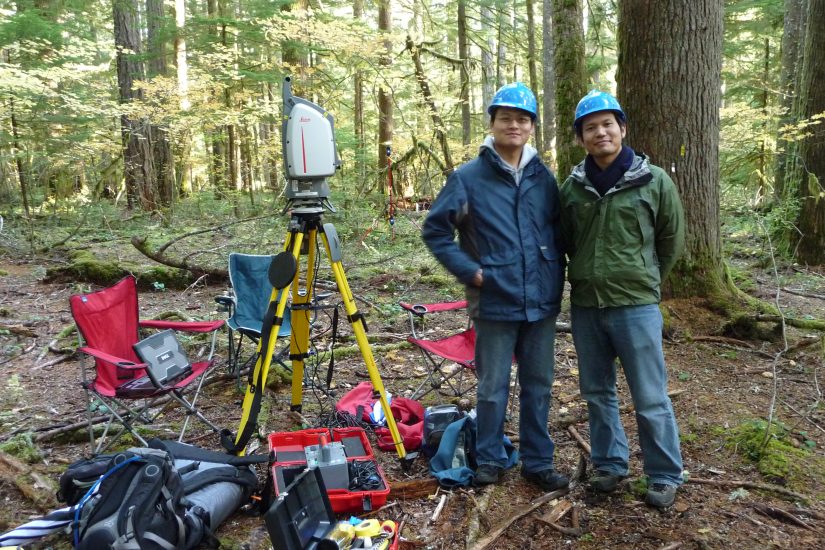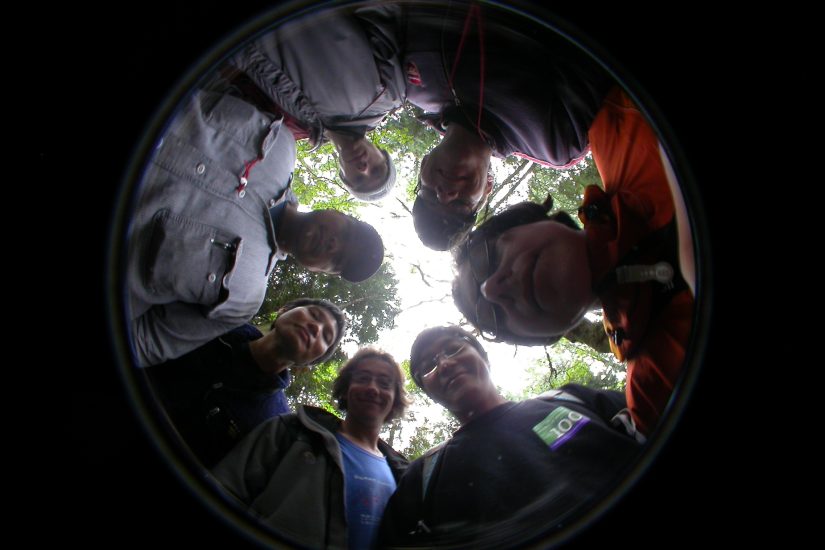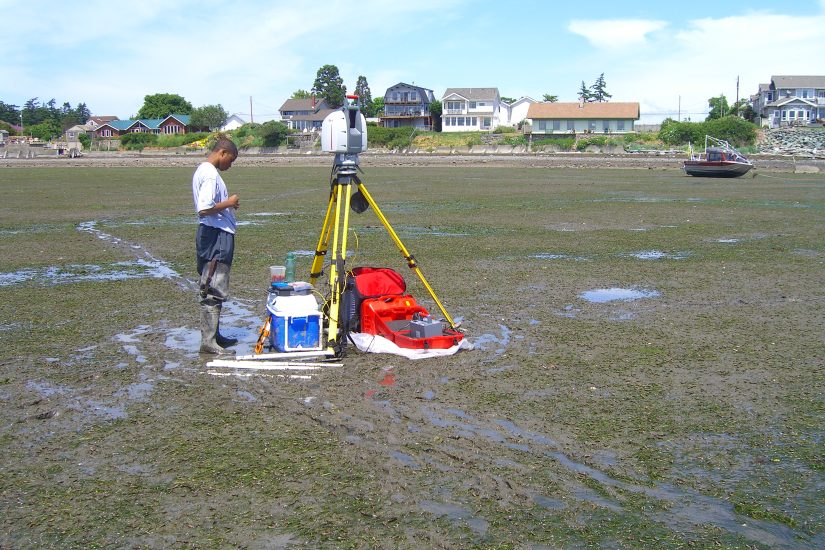25 Years of the Precision Forestry Cooperative
Reflecting on the cooperative’s pioneering research and industry engagement
Since its inception in 2000, the Precision Forestry Cooperative (PFC) has attracted many bright minds to the University of Washington. From visiting faculty on sabbatical and graduate students interested in the conservation of our natural areas to curious minds looking to use technology to conserve and manage ecological resources, the PFC has been their home away from home. The PFC has fostered close collaboration with the state, federal, private, and non-profit land management organizations and utilizes state-of-the-art tools, equipment and technology like LiDAR to improve the quality and reliability of landscape information.

Since 2013, under the adept and enthusiastic leadership of PFC Director Prof. L. Monika Moskal, the PFC has strengthened and diversified its research portfolio while providing strong mentorship to PFC members and affiliates. Prof. Moskal has fostered an inclusive and professional environment and under her leadership the PFC has expanded its recruiting capabilities, incorporating some additional, exceptional scientists and labs, helping them establish healthy research portfolios and attract students from across the world. Prof. Van R. Kane was recruited to join the PFC and the School of Environmental and Forest Sciences as an assistant research professor in early 2015. Kane’s knowledge of forest resilience and LiDAR remote sensing resulted in the establishment of the Forest Resilience Lab at UW. With Prof. Kane’s arrival, the PFC sponsored a permanent UW LiDAR course and now, a decade later, the course is more popular than ever with upwards of 70 students enrolling each spring.
The Forest Resilience Lab is one of five labs that comprises the PFC. The cooperative’s labs also include the Remote Sensing and Geospatial Analysis Laboratory (RSGAL), the Fire Landscapes Adaptive Management & Ecology (FLAME) lab, the Spatial Optimization Laboratory and the Natural Resource Spatial Informatics Group. Each lab brings a slightly different methodological focus, making the PFC a stronger group as a whole.
A key success of Prof. Dr. Moskal’s leadership, and one of which she is most proud, is the opportunity she has had to mentor strong early- and mid-career women scientists. These women have gone on to become leaders and industry experts in the geospatial field. “When you put women in leadership, you allow other women to see opportunities and run with them,” shared Prof. Moskal.
In 2020, Dr. Susan Prichard joined the PFC and established the FLAME lab,. Researchers in her lab use geospatial mapping tools to work alongside fire-adapted communities and fire ecologists to better understand forest fuels and how they burn. That knowledge is shared with fire-country communities so that neighborhoods can become more resilient and better prepare their homes and property for wildfires. From changing the type of vegetation that grows in yards and reducing fuels around properties to screening roofs so that embers can’t get a foothold, the work of our faculty and researchers is helping keep communities safe and adapt to living with wildfires.
One of the PFC graduates is Dr. Meghan Halabisky who joined the PFC in 2017 and spent her tenure at the UW focused on studying terrestrial wetlands. Dr. Halabisky now acts as a key partner alongside Prof. Moskal in RSGAL’s mission to promote sustainable management solutions to pressing environmental issues. Recent research from the lab maps and models wetlands, their hydrologic connections, and their benefits to society so natural resource managers and communities can identify, govern, and restore wetlands and their essential functions. The $5 million National Science Foundation project is called TealWaters and is made up of a team of experts from data scientists and wetland ecologists to geomorphologists. UW’s EarthLab and the School of Environmental and Forest Sciences had a chance to speak with the TealWaters team this spring about the project, its goals and what’s coming next. You can read that interview here.

Prof. Moskal shared, “Dr. Halabisky has become internationally known for her wetland expertise and more recently led the mapping component for Digital Earth Africa as its Senior Science Advisor.” Dr. Halabisky is now spinning out her own non-profit start-up backed by an NSF grant. Despite her many projects, Dr. Halabisky continues to work with the teams here at UW to advance student learning and careers – a testament to the continued community building that the PFC has become known for.
Other notable women scientists mentored by Prof. Moskal include Dr. Laurel James, Director of Programs at the Native American Fish and Wildlife Society in Colorado, Alicia Sullivan, a Product Manager for Google’s Earth Engine Sustainability Solutions, and Alexandra Kazakova, Director of Product Management at Altana. Prof. Moskal and SEFS are proud of what all these women have been able to contribute to geospatial sciences and to natural resources management.
As Prof. Moskal’s tenure as PFC Director comes to a close and cuts in state and federal funding make ripples across American universities, operational funding has become more limited. However, we are fortunate that the PFC, at its outset, was set up with the recognition that the innovation engine of the university is in its faculty, who can partner with external agencies to raise research funds, and recruit and mentor top-notch students. The legislative funding that got the PFC underway continues to support two tenure-track faculty members, and all the constituent labs retain their mission of engaged, collaborative, and technologically innovative research. PFC and its members continue to carry out its mission through successful partnership and external funding, even in times of uncertainty.
As the next generation of ambitious, hopeful and curious students look to develop solutions to big problems, they see the UW’s School of Environmental and Forest Sciences and the College of the Environment as a pathway to developing innovative tools for solving complex environmental challenges.
Make a gift to the Precision Forestry Cooperative Program Support Fund
-

- Guang Zhen (now professor at Nanjing University, China) and Akira Kato (now professor at Chiba University, Japan) mapping forest inventories in Wind River using terrestrial lidar in 2008.
-

- PFC team and collaborator Prof. Soo-Hyung Kim playing with a hemispherical camera used for calibrating laser assessments of leaf area index.
